National Assembly Chairman Vuong Dinh Hue emphasized the viewpoint of building a professional judiciary, in which the court is the center, trial is the focus and litigation is the breakthrough when speaking at the end of the working session with the Supreme People's Court on August 19.
National Assembly Chairman Vuong Dinh Hue emphasized that the People's Court is the center, and adjudication is the core activity of judicial activities. Therefore, the 2014 Law on Organization of People's Courts holds a very important position and role in determining the functions, tasks, powers and organization of the courts as the judicial bodies of the Socialist Republic of Vietnam, exercising judicial power; regulating judges, assessors and other court positions, and ensuring the operation of the People's Courts. This is one of five laws on the organization of the state apparatus promulgated immediately after the 2013 Constitution took effect.
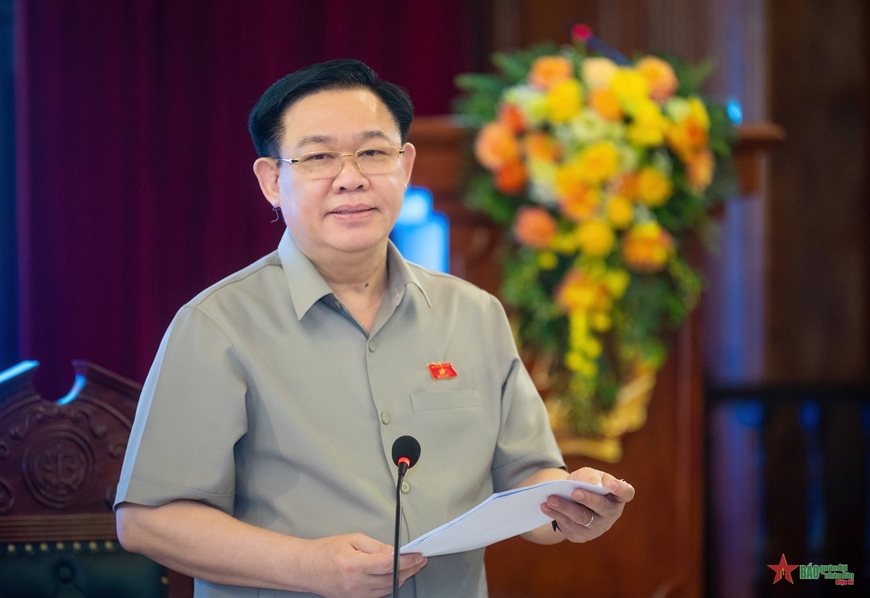 |
| National Assembly Chairman Vuong Dinh Hue delivers a speech concluding the working session with the Supreme People's Court. Photo: PHAM THANG |
After more than 8 years of implementing the Law on Organization of People's Courts, the court system has been improved and developed in both organization and operation; the team of judges, officials and civil servants of the court has been consolidated and strengthened. Each year, the courts have tried and resolved hundreds of thousands of cases and incidents of all kinds. In particular, the courts have closely coordinated with the prosecution agencies to promptly and strictly try major and important cases; cases under the supervision and direction of the Central Steering Committee on Anti-Corruption and Negligence, which have received the consensus, support and high appreciation of public opinion.
The development of precedents has been given attention and promoted. Up to now, many precedents have been selected and issued, and the precedent website has been effectively operated.
The judiciary has carried out many assigned judicial reform tasks and actively participated in the development of Resolution 27 of the Central Committee. Attention has been paid to the construction of electronic courts. To date, more than 1 million judgments have been made public online. The activities of the courts have contributed to maintaining political security and social order and safety, promoting economic and social development.
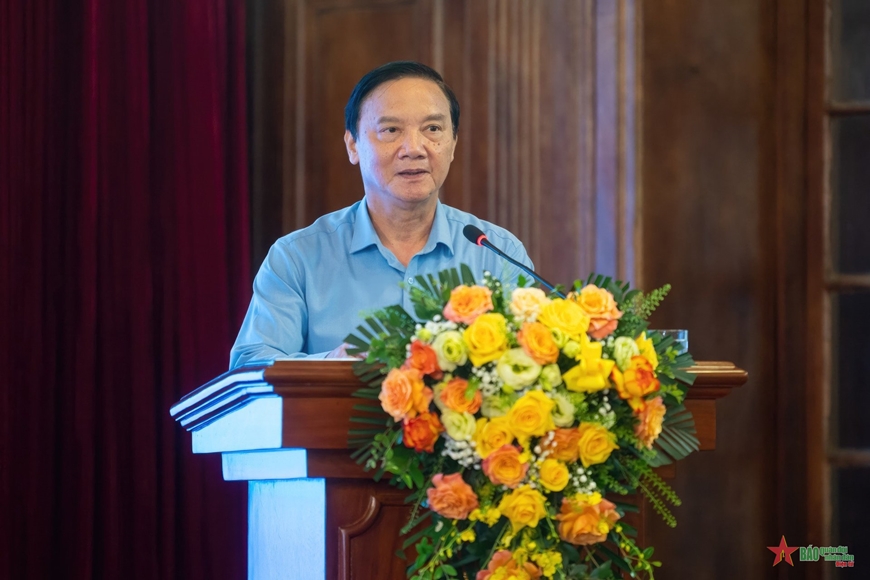 |
| Vice Chairman of the National Assembly Nguyen Khac Dinh speaks at the meeting. Photo: PHAM THANG |
However, the results of the summary of the implementation of the Law on Organization of People's Courts in 2014 show that there are still many difficulties and shortcomings. There needs to be a division of labor, close coordination and effective control of the implementation of legislative, executive and judicial powers.
Regarding the draft Law on Organization of People's Courts (amended), National Assembly Chairman Vuong Dinh Hue highly appreciated the urgency, positivity and proactiveness of the Supreme People's Court in preparing to draft the law. The Supreme People's Court has carried out many activities such as: Summarizing the implementation of the 2014 Law on Organization of People's Courts; assessing the impact of policies proposed for drafting the law; organizing a national conference of Chief Justices of 4-level Courts; organizing conferences in 3 regions to collect opinions on the draft Law on Organization of People's Courts (amended); organizing many workshops to collect opinions from experts and scientists.
On this basis, National Assembly Chairman Vuong Dinh Hue suggested that the Supreme People's Court should thoroughly grasp and closely follow major policies on judicial reform - that is, the resolution of the 13th National Congress of the Party and Resolution No. 27 of the Central Committee. In which, based on the 2013 Constitution, it should continue to review and institutionalize, concretize in the Law on Organization of People's Courts (amended).
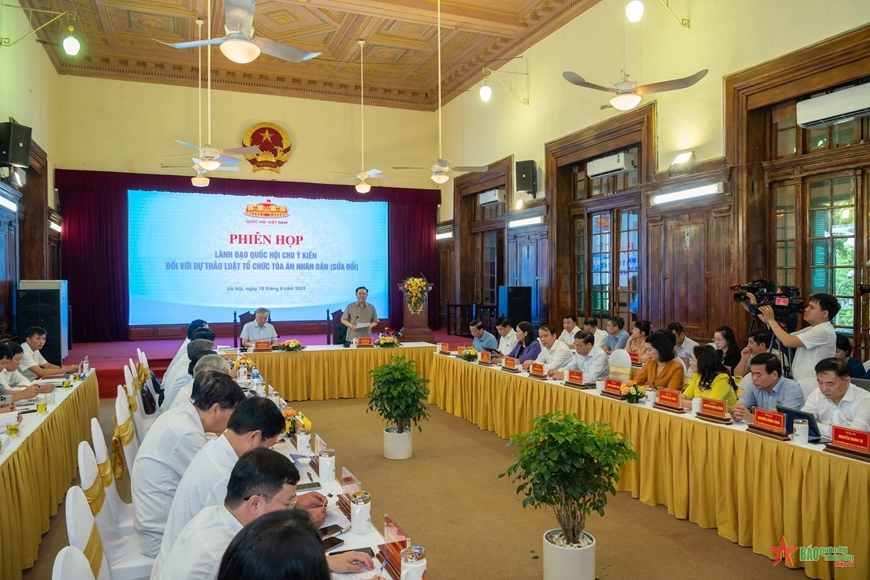 |
| Working scene. Photo: PHAM THANG |
According to the National Assembly Chairman, the People's Court is the judicial body of the Socialist Republic of Vietnam, exercising judicial power in a rule-of-law state, organized and operating on the principle of unified power, with division of labor, close coordination and effective control over the implementation of legislative, executive and judicial powers. Building a professional judiciary, in which the court is the center, trial is the focus and litigation is the breakthrough.
National Assembly Chairman Vuong Dinh Hue also noted that it is necessary to ensure specific principles in the organization of judicial activities, especially the principle that judges and trial panels are independent and only obey the law, but within the framework and ensure the principle that State power is unified, with division of labor, coordination and control of State agencies in the exercise of legislative, executive and judicial powers.
National Assembly Chairman Vuong Dinh Hue requested to ensure the constitutionality, unity and synchronization of the legal system, the contents of judicial reform have many major issues closely related to the full institutionalization of specific constitutional principles in the organization and operation of the State apparatus in general and specific constitutional principles in the organization and operation of the People's Court in particular. Therefore, the requirement is to absolutely ensure constitutionality.
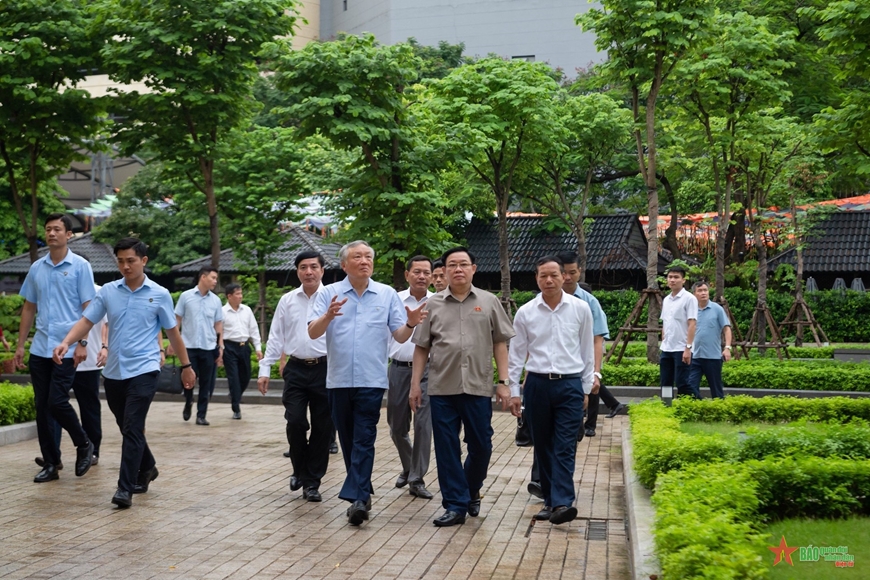 |
| National Assembly Chairman Vuong Dinh Hue at the Supreme People's Court. Photo: PHAM THANG |
Based on the initial opinions of the National Assembly's Judiciary Committee, the opinions of ministries, branches, the Drafting Committee and the agency in charge of the review need to continue to coordinate to supplement and complete the content of the draft discussion, thoroughly grasping the important content of ensuring the overall consistency and connection between legislation, administrative reform, judicial reform, harmonious combination, stable inheritance with innovation and development.
National Assembly Chairman Vuong Dinh Hue emphasized that the viewpoint of the National Assembly Party Delegation is that perfecting the legal system must create development and international integration.
WIN
*Please visit the Politics section to see related news and articles.
Source


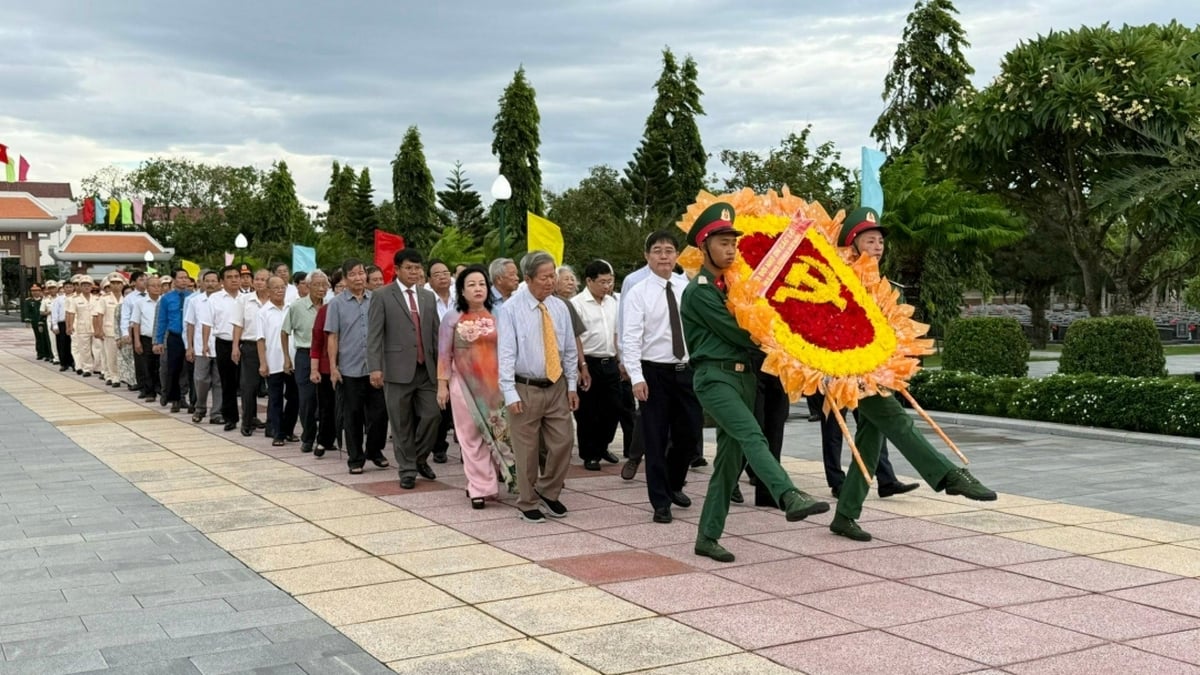
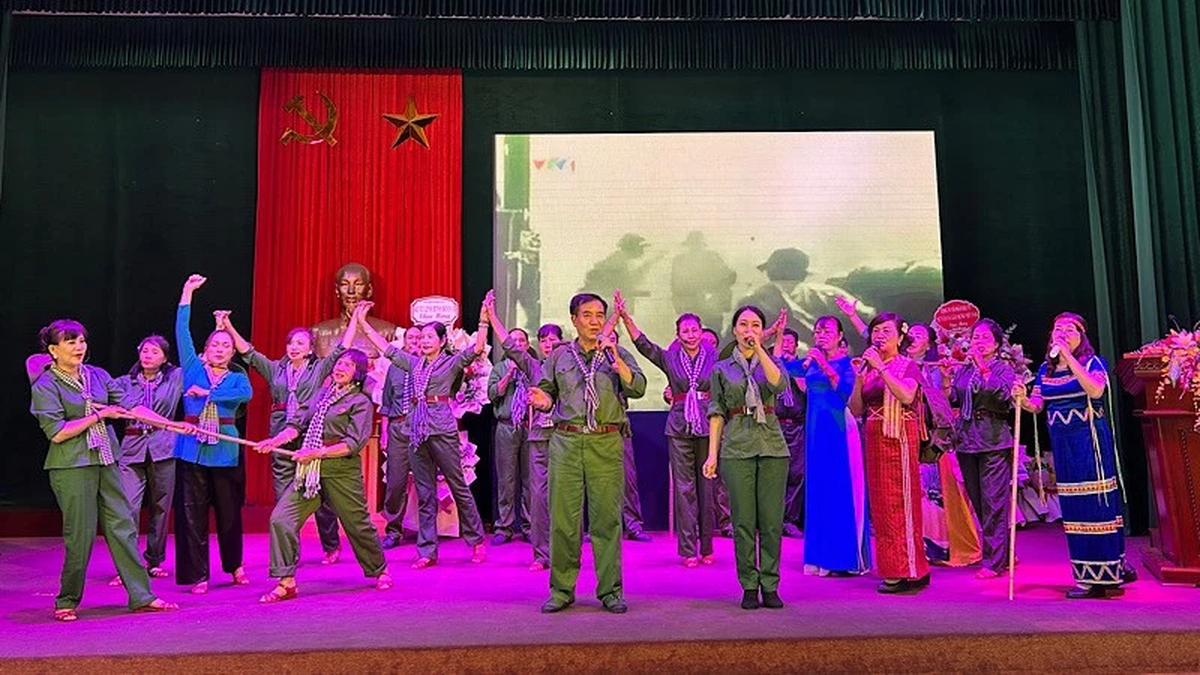



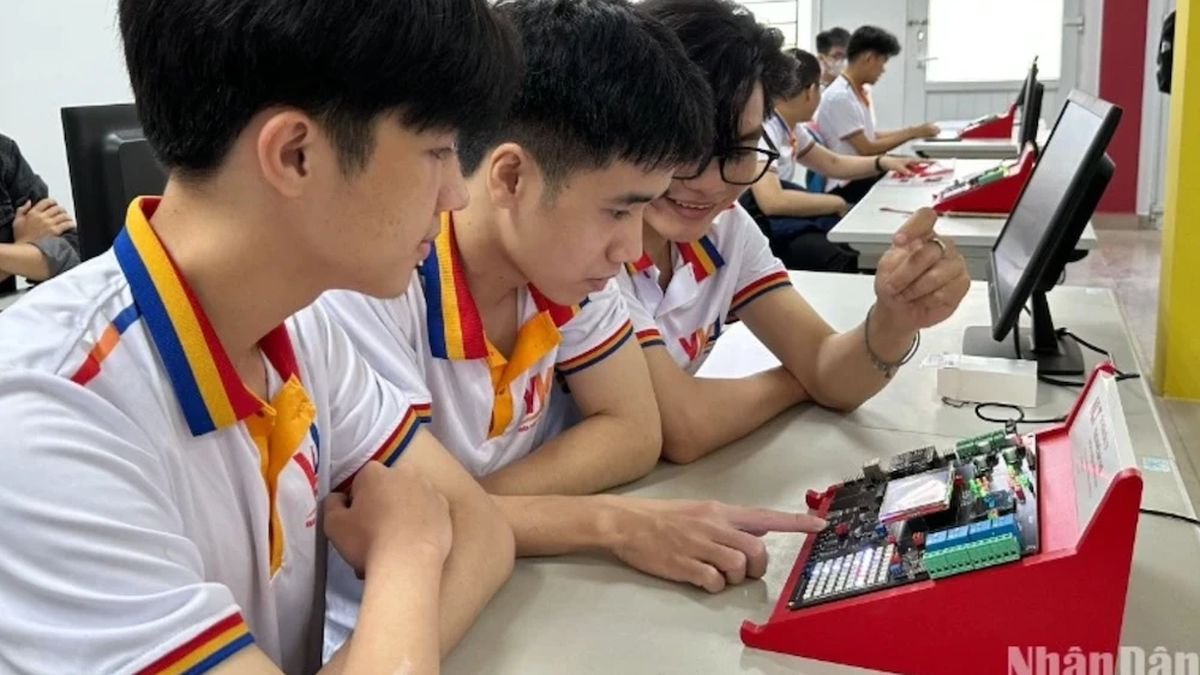
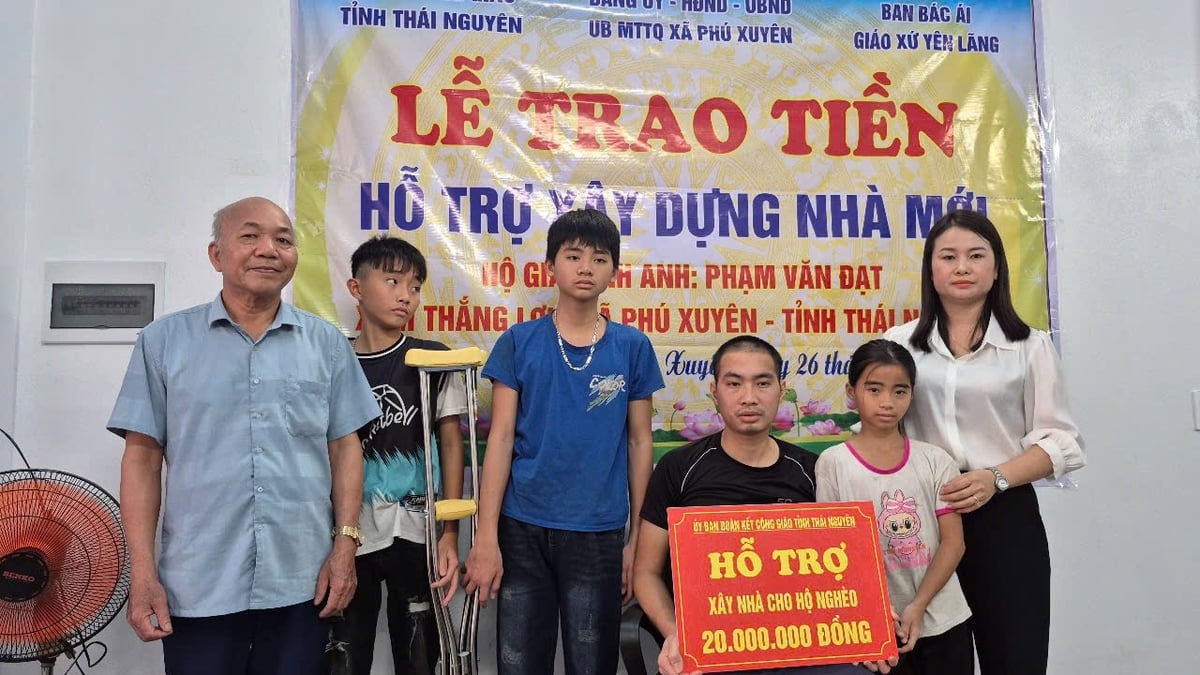

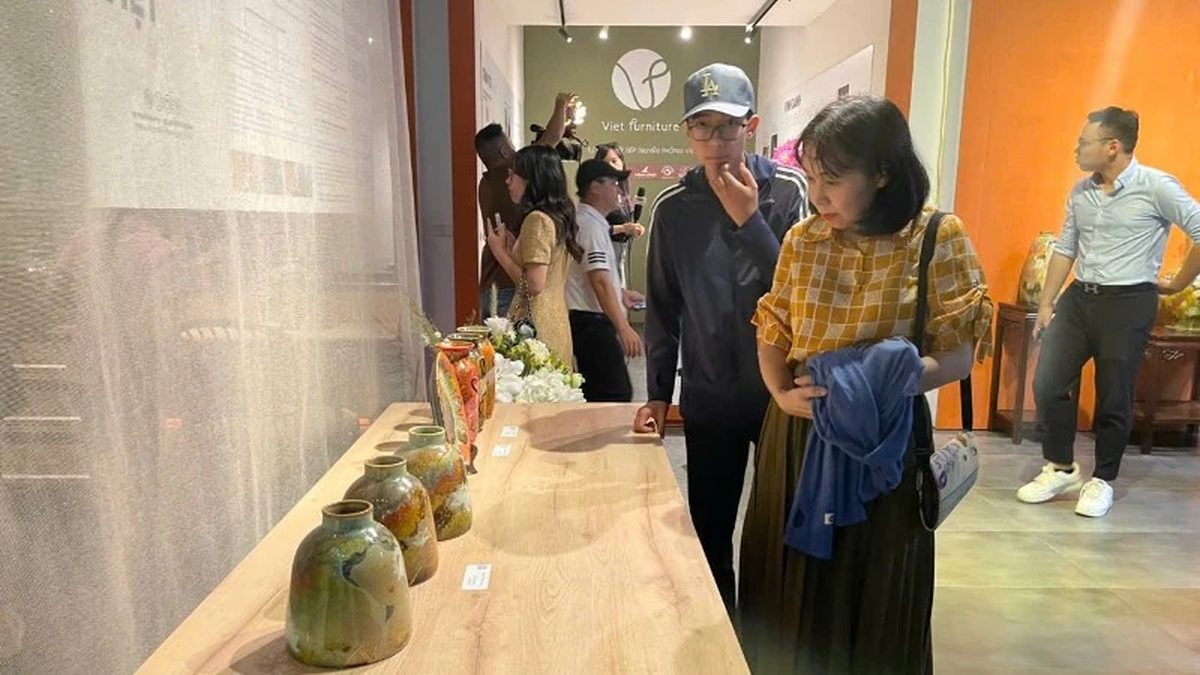
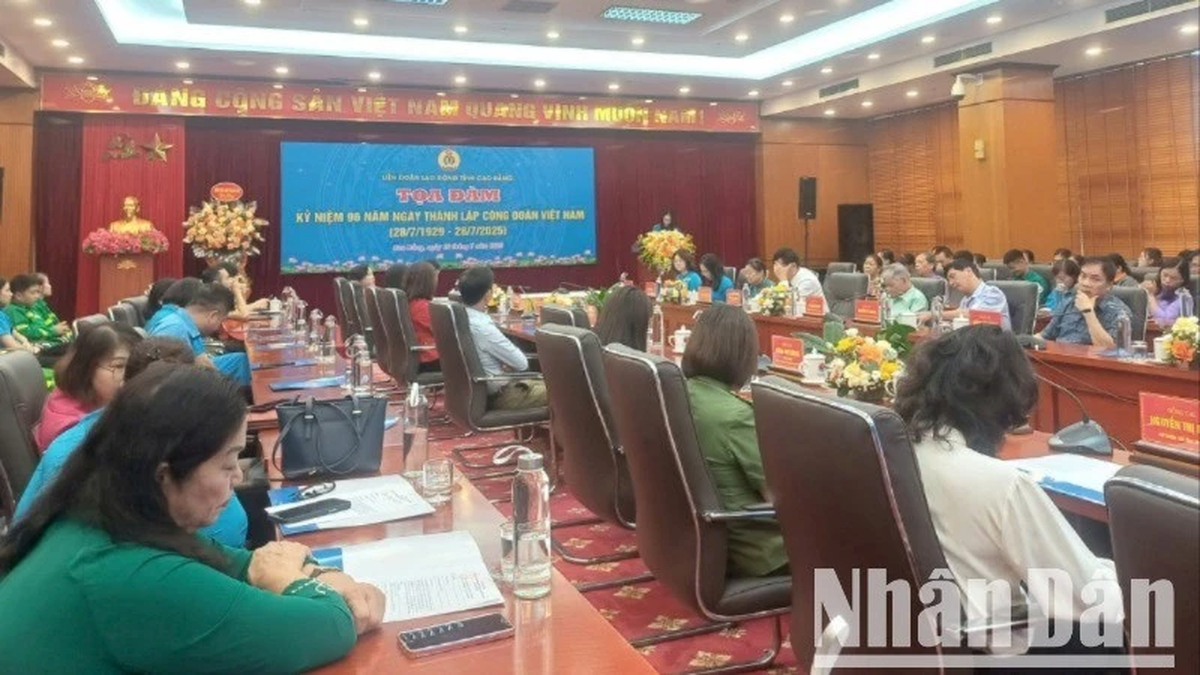














![[Photo] Signing of cooperation between ministries, branches and localities of Vietnam and Senegal](https://vphoto.vietnam.vn/thumb/1200x675/vietnam/resource/IMAGE/2025/7/24/6147c654b0ae4f2793188e982e272651)




































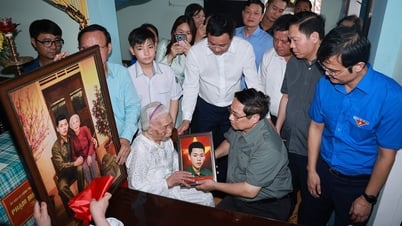
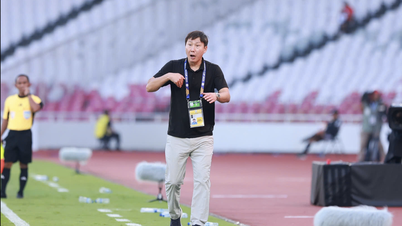










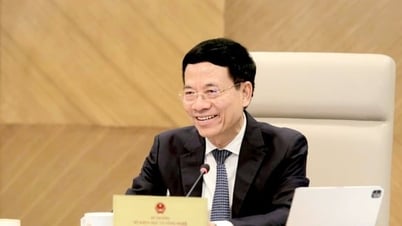

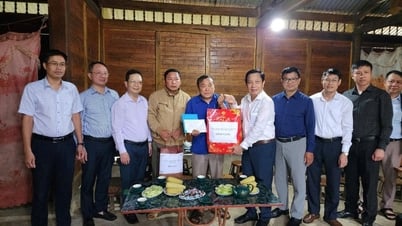
























Comment (0)